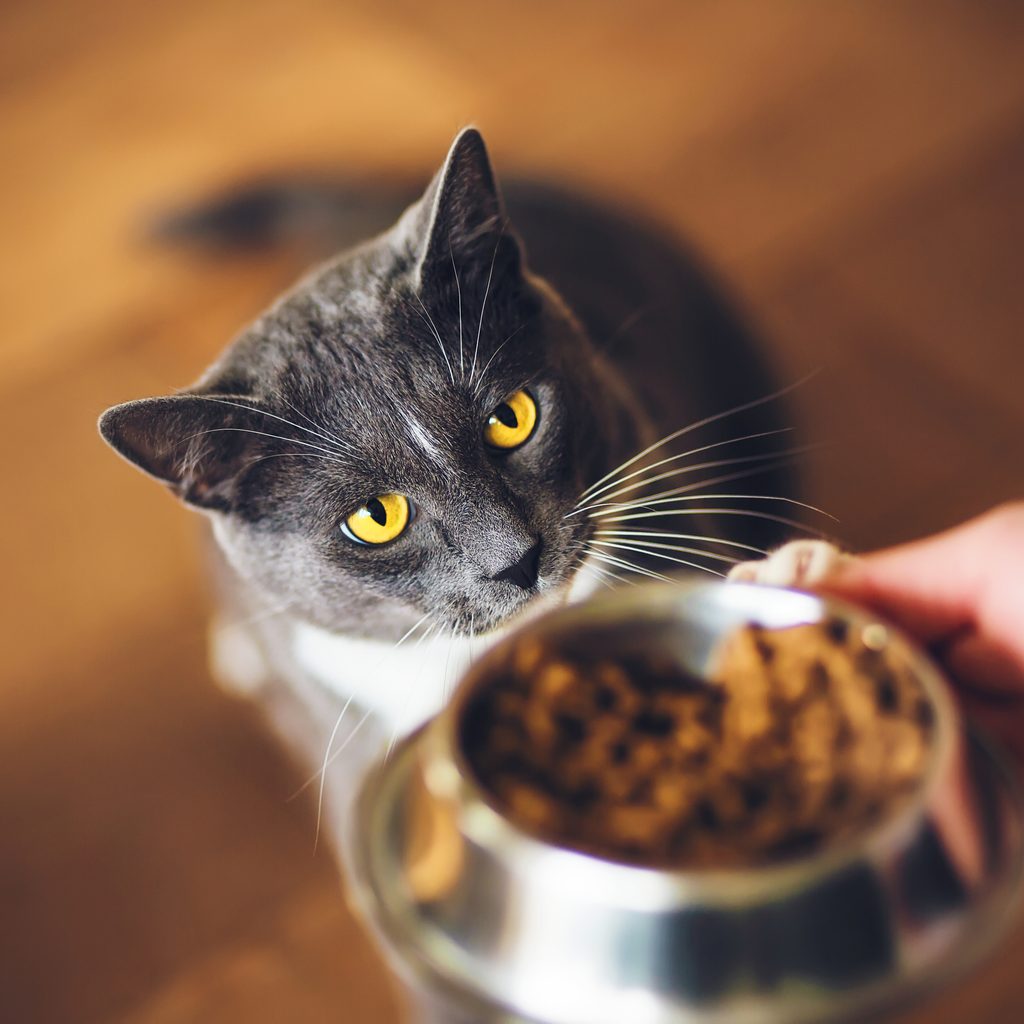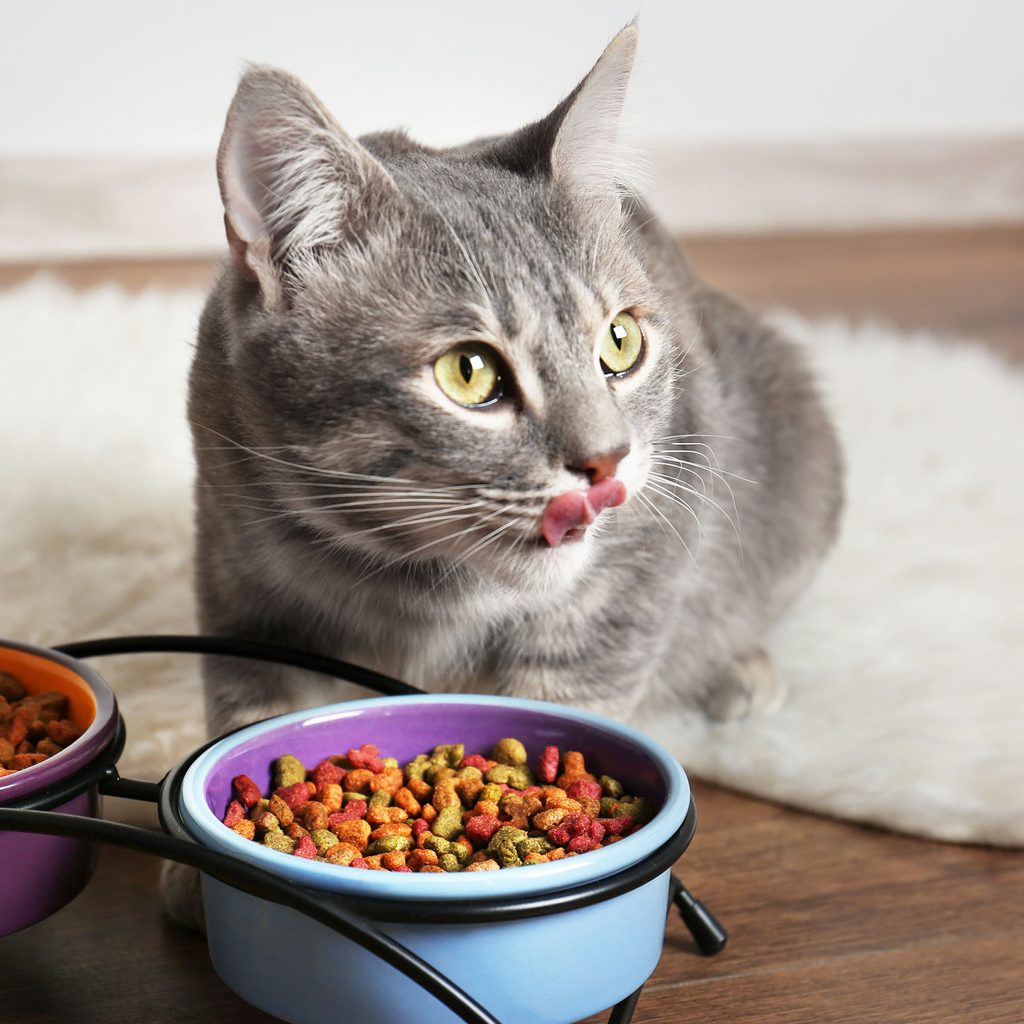When you share your home with cats, cat hair becomes a part of your life. You’re bound to find it on your furniture, rugs, clothes, and more, thanks to your cat’s shedding. But if your cat starts shedding unusually large amounts of hair, keeping your home clean can become quite a challenge. You might turn to solutions like frequent brushing and vacuuming, but you may be able to reduce your cat’s shedding with a simple change to his diet. If the hair tumbleweeds are building up around your house and you’re going through lint roller after lint roller, consider assessing your cat’s diet to see if you can solve the shedding problem with nutrition.

Does cat food affect shedding?
The short answer is yes. Your cat’s nutrition plays an important role in the health of his coat. If your cat’s diet lacks essential nutrients, then he won’t grow the most healthy coat, and he can experience increased shedding and hair breakage. Plus, your cat’s coat just won’t look or feel as good as it could if he received the nutrition he really needs.
Improving the quality of the food that you’re feeding your cat is one easy way to support his coat health and potentially reduce the amount of hair that you find around your home. If you’re feeding a lower-quality food, spending a little more on your cat’s food and getting a better-quality product could make for a healthier coat, as well as a healthier cat.
What to feed cats to stop shedding
Two essential ingredients affect your cat’s coat health:
- Protein from animal-based sources: Protein contributes to the quality of your cat’s coat, and if his diet is low in protein, the quality of his coat will suffer.
- Fat — particularly omega-3 and omega-6 fatty acids: These fatty acids contribute to skin and coat health, and they’re contained in many fish products and fish oils, like salmon oils.
When choosing a cat food for your cat, look for a food that features animal-based proteins as the first or second ingredient. Make sure that the food contains salmon oil or another fish oil to ensure that it provides the fatty acids your cat’s body needs.
If you’re uncertain of which food is best for your cat, talk with your vet. They can recommend a product or help you determine whether the food you’re feeding is high-quality enough. You might also consider topping your cat’s food with fish oil to boost his coat health.

Additional ways to reduce shedding
While an optimal diet will promote a healthy coat, your cat will still shed some. It’s just part of life. You can help your cat shed less in a few other ways.
- Frequent brushing will help keep your cat’s coat healthy while also removing loose hair in a more controlled way.
- The occasional bath can also get rid of extra hair.
- Keeping your cat hydrated also helps his coat stay healthy. Make sure that you’re providing your cat with wet food, which lets him get moisture as he eats. Place water dishes throughout your home in different locations so water is always easily accessible. You can also buy water fountains for cats, which keep water moving to make it more appealing. These water fountains may encourage your cat to drink more than he normally would, which can help keep his coat healthier.
Some cats naturally shed more than others, so even though dietary changes may reduce that shedding, they won’t eliminate the problem altogether. It’s helpful to invest in a powerful vacuum with a motorized head to pull cat hair up out of carpets. Having some lint rollers on hand can also minimize the amount of hair that ends up on furniture or on your clothes. Keeping your cat healthy can contribute to his coat health and minimize the shedding issues, but it’s also important to watch for irregular shedding. If your cat suddenly starts shedding excessively, or if you notice irritated skin or bald patches, it’s time for a trip to the vet to make sure that another issue, like an allergy or flea infestation, isn’t to blame.



